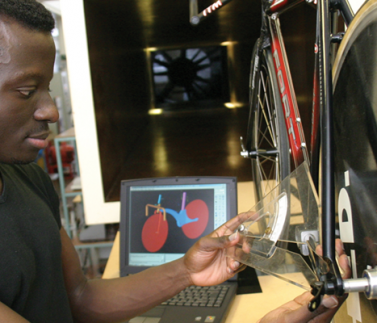
Seizing the opportunity to offer more people the chance of success through higher technical education
In the months leading up to the general election being called, the government repeatedly made clear its commitment to developing and enhancing the availability and choice of qualifications for all learners.
The Secretary of State for Education Gavin Williamson recently spoke to university vice-chancellors on this matter, highlighting the positive role that universities and apprenticeships can play in further developing technical education in the UK.
One area of focus is the development of qualifications at level 4 and 5. The Augar Review of post-18 education and funding identified a ‘missing middle’ that currently exists at level 4 and 5 of the National Qualifications Framework (NQF). Demand for qualifications at this level, which sit after level 3 qualifications such as a-levels, but before undergraduate degrees, is high, but there is currently a low supply.
Technical education has traditionally been thought of as solely vocational, but it is already delivered by universities in a wide range of subject areas. Technical education encompasses level 4/5, apprenticeships and degrees such as law, engineering and medicine, and key areas of demand are business services, leadership and management, showing that interest is not just in STEM (science, technology, engineering, and mathematics) subjects. As well as these, there is value in non-technical higher education at level 4 and 5, such as arts qualifications.
Boosting technical educational opportunities will benefit learners by offering a wide range of skills and routes which could entice them to stay on after level 3 – a level which 36% of young learners currently don’t progress beyond.
Filling in this ‘missing middle’ is an active programme of work for the government, who have recently consulted on a series of proposals for Higher Technical Qualifications (qualifications aimed at providing the technical knowledge, skills and behaviours needed for a range of job roles). The development of level 4/5 technical provision was also recommended in the 2016 report from the Independent Panel on Technical Education.
Proposals in the consultation included the suggestion for a gateway for level 4/5 through the Institute for Apprenticeships and Technical Education to achieve greater recognition and enhanced status, linking them to occupational standards, improved quality processes and better promotion to raise awareness and create demand for these qualifications.
Following the government’s consultation, UUK replied to explain that universities are well placed to play an active role in the provision of level 4/5 qualifications. They already do to an extent, currently teaching 32% of these qualifications. At the University of Coventry Scarborough campus, they offer Higher National Certificates, Higher National Diplomas and foundation degrees with varied start dates, opportunities to dip in and out and delivered at flexible times.
Like the government, universities are fully committed to developing higher technical qualifications, but for it to be a success, UUK has come up with the following recommendations:
• Provide an additional opportunity for learners alongside academic and apprenticeships pathways.
• Provide opportunities for learners to progress between different pathways, giving them the broadest possible choice of options.
• Build on existing qualifications and existing providers to provide a firm foundation for success, some of the pieces are already there, don’t throw them away.
• Focus on providing opportunities to enable those young people that have a level 3 as their highest qualification to get on the path to higher paying skilled jobs and professions.
• Ensure that flexibility is increased to enable those in work to engage in more learning and reverse the decline in part-time higher education
• Avoid the addition of significant bureaucracy and cost that is unrelated to actual provision and ensure the Institute for Apprenticeships and Technical Education delivers a streamlined approval process.
• Invest in promotion, communication and guidance.
• Encourage and incentivise partnerships between higher education and further education and links with employers.



